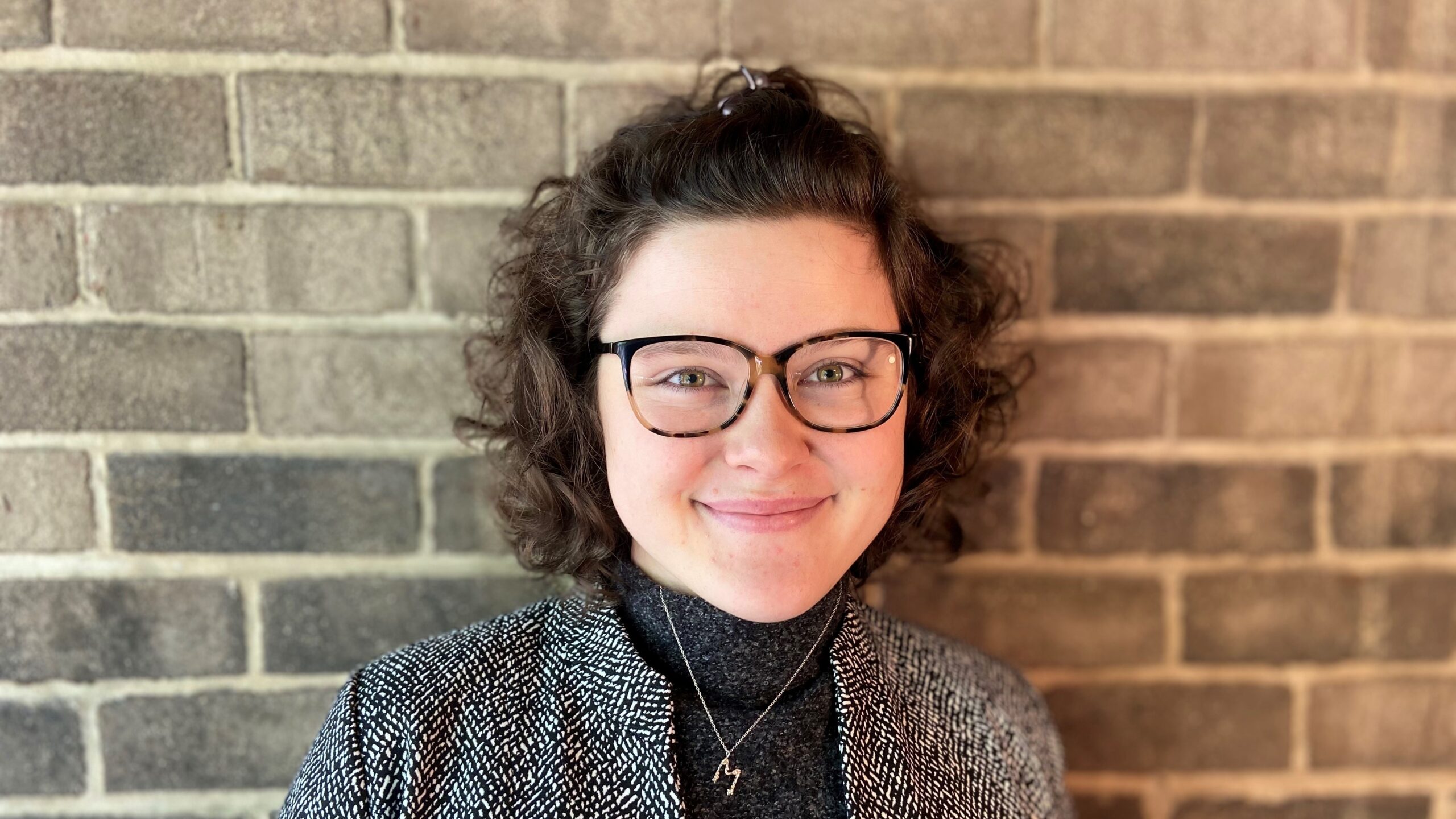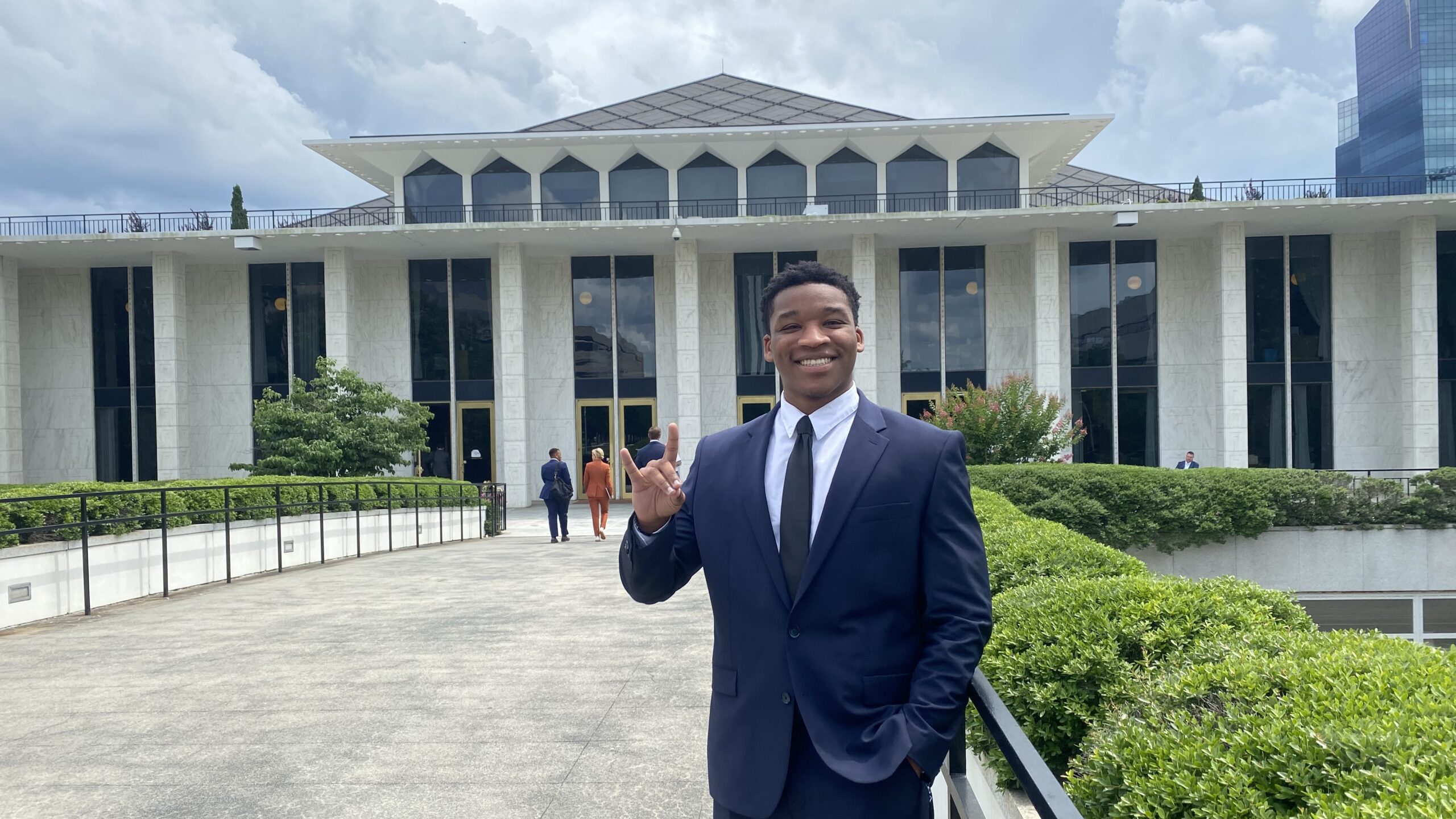For Michaela Davis (‘21), Study Abroad Leads to Undergraduate Research

Michaela Davis has had a busy senior year during which she took full advantage of NC State’s undergraduate research opportunities. By pursuing degrees in both political science (international politics) and international studies (global studies), with a minor in Spanish, Michaela has been able to combine her academic interests with her international experiences and, before she graduates, she will have presented her research at both the Midwest Political Science Association Annual Conference and the NC State Spring Undergraduate Research Symposium.
Michaela studied abroad in Barcelona during the fall of 2019 and that experience ignited her interest in the affect regional language use has on national identity.
“In October 2019, Barcelona experienced political unrest that grew out of the 2017 Catalan independence vote. Protests and riots were shown on television during the height of the tensions, and for a while I walked by people marching for Catalan independence on my way to class,“ Michaela explained. “I was living with a host family and we frequently talked about politics, cultural tensions, language barriers, and identities. One of my host sisters was only four-months-old at the time and constantly exposed to Spanish, English, French and Moroccan Arabic. We often wondered about which language her first word would be in and we talked about how her identity would be formed by such a multicultural, multilingual household.”
These conversations, coupled with the socio-political tensions Michaela witnessed in Barcelona, sparked her interest in the relationship between language and identity in Catalonia, which later became the topic of her political science honors thesis. We asked Michaela to tell us more about her research and why she feels it is important for students to make research an integral part of their undergraduate degree programs.

What is the topic of your political science research project?
My research examines the extent to which regional language use, more specifically Catalan language use, diminishes Spanish national identity.
What do you hope to learn from your research?
I hope to understand the effects of regional language use and regional linguistic identities on individuals’ Spanish national identities. On a more personal level, I hope to grow in my cultural competency and understand how my uncontrollable biases as a researcher can affect my understanding of the issue. One example of this is a difference I have found between my conceptualization of the relationship between the territories of Catalonia and Spain. I view the Catalonia-Spain relationship as similar to the Texas-US relationship. In this sense, I often label the autonomous community as a region. In the eyes of my survey respondents, however, Catalonia is a “nation” and Spain is the “state.” I think this differentiation is significant in that the “state” refers to the civil government of a territory, whereas a “nation” is a geographic territory which contains a people who share common values, ideologies, backgrounds, cultures and languages. This phrasing in itself shows that Catalans identify more with Catalonia than with Spain.
What is the most interesting part of the project, so far?
Collecting primary data has been the most interesting part of my project, and it’s the part that I’m most excited about. As an undergraduate student, I have taken courses that require research and analysis of data, but I have learned that data collection is incredibly difficult. Deciding what survey questions are necessary, how to reach the population you’re studying, and then paying for data collection has been a struggle, but it has been the most rewarding and interesting part of this research.
I continue to be amazed by the success of my survey. I expected 15 responses at most and received 49. I think I am just in awe that I have been able to collect such data from respondents all the way in Spain on an undergraduate budget.
What has been the most challenging and why?
Quite honestly, the most challenging part of this research has been acknowledging that my “outsider” view of issues pertinent to my research, especially bilingual education, has not been entirely correct. Based on the scholarly literature on bilingual education, in which Spanish and Catalan are the languages of instruction in primary education in Catalonia, it appeared to me that there has been an increase in Catalan language use. However, after reviewing my data, it appeared that the issue was more nuanced than I had originally thought. It is difficult for a researcher to challenge her preconceptions and identify her bias, but as I have learned the past few weeks, it is a necessary element of accurate and reliable research.
What have you learned about yourself by taking on this research project?
I’m glad to have learned that being wrong is often a part of the learning process. In my opinion, if my data results had proven every element of my hypothesis, then I would not have conducted my research properly!
Who is your research advisor and how do you work together?
Dr. Dmitri Mitin is my research advisor, and I could not have asked for a better advisor during this process. His experience as a researcher and discussant has made him an incredible resource to me during this process. I started this project not knowing which conferences to apply to, how the IRB approval process functioned or how funding worked. Dr. Mitin has given me invaluable insight into all this and more and I would not have learned nearly as much on this journey had he not been my guide.
Beyond his support during the procedural steps, our meetings challenge me to think about the subject in different ways. During one meeting Dr. Mitin used a set of Russian nesting dolls to help me visualize a possible relationship among identities; we spoke about how, based on my preliminary literature review, there appeared to be a sort of system of nested identities in Catalonia in which Catalan, Spanish, and European identity seemed to be arranged within and around one another. I have nothing but great things to say about Dr. Mitin!
Has the pandemic affected your research process?
Absolutely, it has. However, I think that the pandemic has actually made the data collection process easier for me. Most people are virtual right now, so I feel that more people are staying in touch via email and are paying more attention to their inboxes. Due to this, I think that I have gotten many more responses than I would have had the pandemic not made people around the globe transition to work-and school-from-home.
What are your plans after graduation?
I am in the interview process for a job in the federal government and this is my top choice, but I am still applying to many different research analyst positions across the nation. I also plan to take the GRE soon and hope to start a part-time masters program in security studies, intelligence or international relations.
Why do you think undergraduate students should conduct research projects?
Besides the many intellectual and experiential benefits of undergraduate research, I feel that it can really help undergraduates stand out when applying to graduate programs and that first profession job. It shows employers and universities that you are a self-starter, you can navigate the administrative hoops (acquiring funding, getting approval, applying to conferences) that accompany a research project, and that you can identify a relevant problem and analyze that problem using the current scholarship and your own data. Research experience is an attractive quality to both employers and universities, especially if you start early as an undergraduate.
What advice do you have for students thinking about starting their own projects?
Pick a topic that interests you – this makes all the difference! When you’ve dedicated a lot of time and effort collecting and analyzing data, your interest in the subject matter and the results will give you the energy you need to finish the process, especially if the workload gets stressful or overwhelming.


